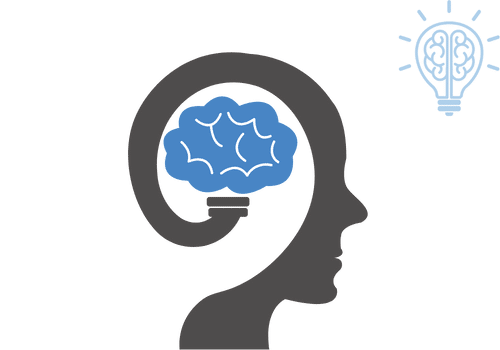What Are Mindsets?
Mindsets are the mental frameworks that shape how we interpret experiences, approach challenges, and respond to setbacks. They influence our beliefs about our abilities, intelligence, and potential for growth.
Mindsets play a crucial role in motivation, learning, and personal development. They impact how we set goals, handle failure, and develop resilience in the face of obstacles.
Types of Mindsets: Fixed vs. Growth
Psychologist Carol Dweck’s research identifies two main types of mindsets:
🚫 Fixed Mindset
People with a fixed mindset believe that intelligence, talents, and abilities are static and unchangeable. They may avoid challenges, fear failure, and view effort as pointless.
Signs of a Fixed Mindset:
- Avoids challenges to prevent failure.
- Believes abilities are innate and unchangeable.
- Feels threatened by the success of others.
- Gives up easily when faced with difficulties.
✅ Growth Mindset
People with a growth mindset believe that abilities and intelligence can be developed through effort, practice, and learning. They embrace challenges, persist through setbacks, and see failure as an opportunity for growth.
Signs of a Growth Mindset:
- Views challenges as learning opportunities.
- Believes effort leads to improvement and success.
- Learns from criticism and feedback.
- Celebrates the success of others as inspiration.
Why Are Mindsets Important?
Mindsets influence how we handle difficulties, approach learning, and set goals. They help:
🧠 Boost Resilience
A growth mindset helps people push through setbacks instead of giving up.
📈 Enhance Learning and Performance
Those who believe they can improve are more likely to persist in developing new skills.
🚀 Improve Motivation
Mindsets affect how much effort and dedication we put into challenges.
💡 Encourage Problem-Solving
Growth-oriented thinkers seek solutions rather than seeing obstacles as permanent barriers.
How Mindsets Relate to Executive Function
Mindsets influence several key executive function skills, including:
- Goal-Directed Persistence: A growth mindset helps maintain motivation and commitment to long-term goals.
- Task Initiation: A positive mindset reduces fear of failure, making it easier to start new tasks.
- Self-Monitoring: Growth mindsets encourage reflection and continuous self-improvement.
- Emotional Regulation: Adopting a flexible mindset helps manage frustration and disappointment.
- Cognitive Flexibility: Being open to new ways of thinking fosters adaptability in problem-solving.
Common Challenges in Shifting Mindsets
Developing a growth mindset can be difficult due to ingrained beliefs, fear of failure, or past experiences. Common challenges include:
- ⚡ Struggling to break out of negative thought patterns.
- ⏳ Expecting immediate results instead of gradual progress.
- 🚧 Letting past failures define future potential.
- 🔄 Viewing effort as a sign of weakness rather than a tool for growth.
Effective Strategies for Developing a Growth Mindset
Mindsets are not fixed—they can be changed with practice and self-awareness. Here are some strategies to cultivate a growth mindset:
✅ 1. Reframe Challenges as Opportunities
Instead of saying, “I can’t do this,” shift to “I haven’t figured it out yet.”
✅ 2. Focus on Effort, Not Just Results
Praise persistence and learning, rather than just success.
✅ 3. Learn from Mistakes
View failures as feedback and a chance to improve.
✅ 4. Replace “I’m Not Good At This” with “I Can Improve”
Challenge limiting beliefs by recognizing that growth takes time and effort.
✅ 5. Seek Constructive Feedback
Actively look for ways to grow rather than avoiding criticism.
✅ 6. Surround Yourself with Growth-Oriented Thinkers
Engage with people who encourage learning and persistence.
✅ 7. Track Progress and Small Wins
Recognizing improvement builds motivation and reinforces a growth mindset.
How Executive Function Coaching Can Help
For individuals struggling with negative thought patterns, executive function coaching provides personalized strategies to shift towards a growth mindset. Coaching can assist with:
- Identifying and challenging self-limiting beliefs.
- Strengthening motivation and goal-setting skills.
- Developing resilience and emotional regulation techniques.
- Enhancing cognitive flexibility and problem-solving abilities.
By intentionally cultivating a growth mindset, individuals can improve their ability to learn, adapt, and succeed in both personal and professional settings.
📞 Want to develop a stronger, growth-oriented mindset? Contact us for executive function coaching today!




